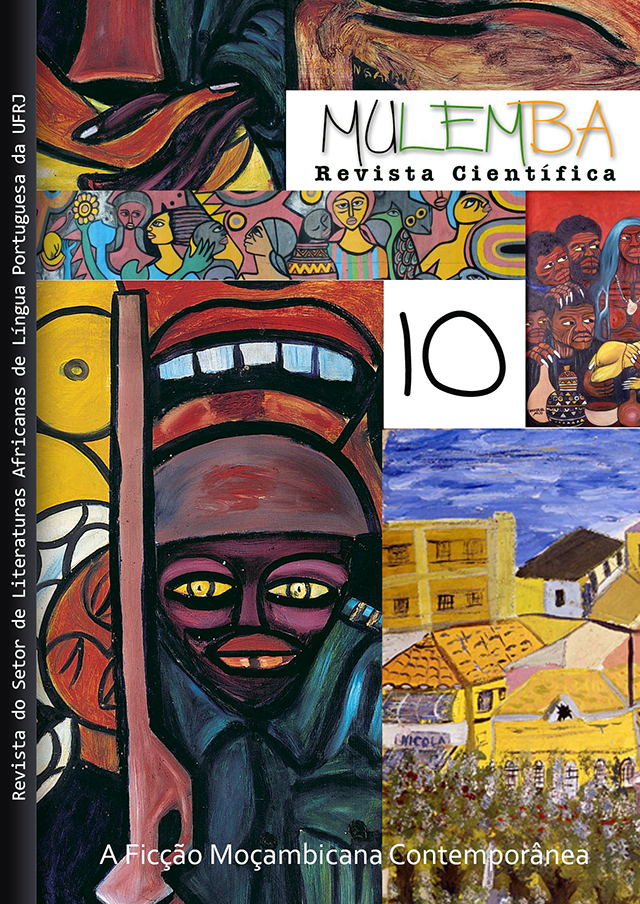BALADA DE AMOR AO VENTO: AS RELAÇÕES DE GÊNERO NA FICÇÃO DE PAULINA CHIZIANE
DOI:
https://doi.org/10.35520/mulemba.2014.v6n10a5001Palabras clave:
Paulina Chiziane, relações de gênero, narrativa.Resumen
O objetivo de nosso estudo é desenvolver uma análise do romance Balada de amor ao vento (1990), da escritora moçambicana Paulina Chiziane, numa perspectiva de intervenção que problematiza as relações de gênero em Moçambique. O regime de poligamia em Moçambique, nesse sentido, torna-se um ponto de intersecção que, embalado pela narração poética de Sarnau, protagonista da referida narrativa, provoca uma discussão sobre as tensões políticas, culturais e religiosas da sociedade moçambicana. Propõe também uma leitura do papel da mulher moçambicana, presa a uma estrutura social machista, incompatível com a proposta de modernização de um país que experiência o processo de formação identitária. Neste romance, podemos perceber que o relato das experiências amorosas de Sarnau é uma forma de universalizar as particularidades femininas, de questionar a condição masculina e dar visibilidade à condição feminina em Moçambique.
PALAVRAS -CHAVE: Paulina Chiziane; relações de gênero; narrativa.
Descargas
Descargas
Publicado
Número
Sección
Licencia
Los autores que publican en esta revista concuerdan con los siguientes términos:
- Los autores mantienen los derechos autorales y conceden a la revista el derecho de primera publicación, con el trabajo simultáneamente licenciado bajo la Licencia Creative Commons Attribution que permite compartir el trabajo con reconocimiento de la autoría y publicación inicial en esta revista.
- Los autores tienen autorización para asumir contratos adicionales separadamente, para distribución no exclusiva de la versión del trabajo publicada en esta revista (ej.: publicar en repositorio institucional o como capítulo de libro), con reconocimiento de autoría y publicación inicial en esta revista.
- Los autores tienen permiso y son estimulados a publicar y distribuir su trabajo online (ej.: en repositorios institucionales o en su página personal) en cualquier momento antes o durante el proceso editorial, ya que eso puede generar alteraciones productivas, así como aumentar el impacto y la citación del trabajo publicado (Vea El Efecto del Acceso Libre).

